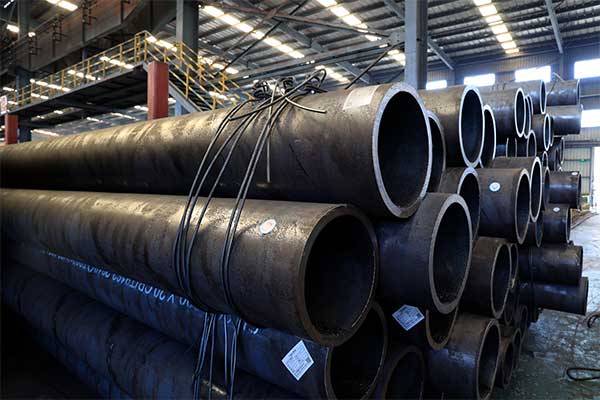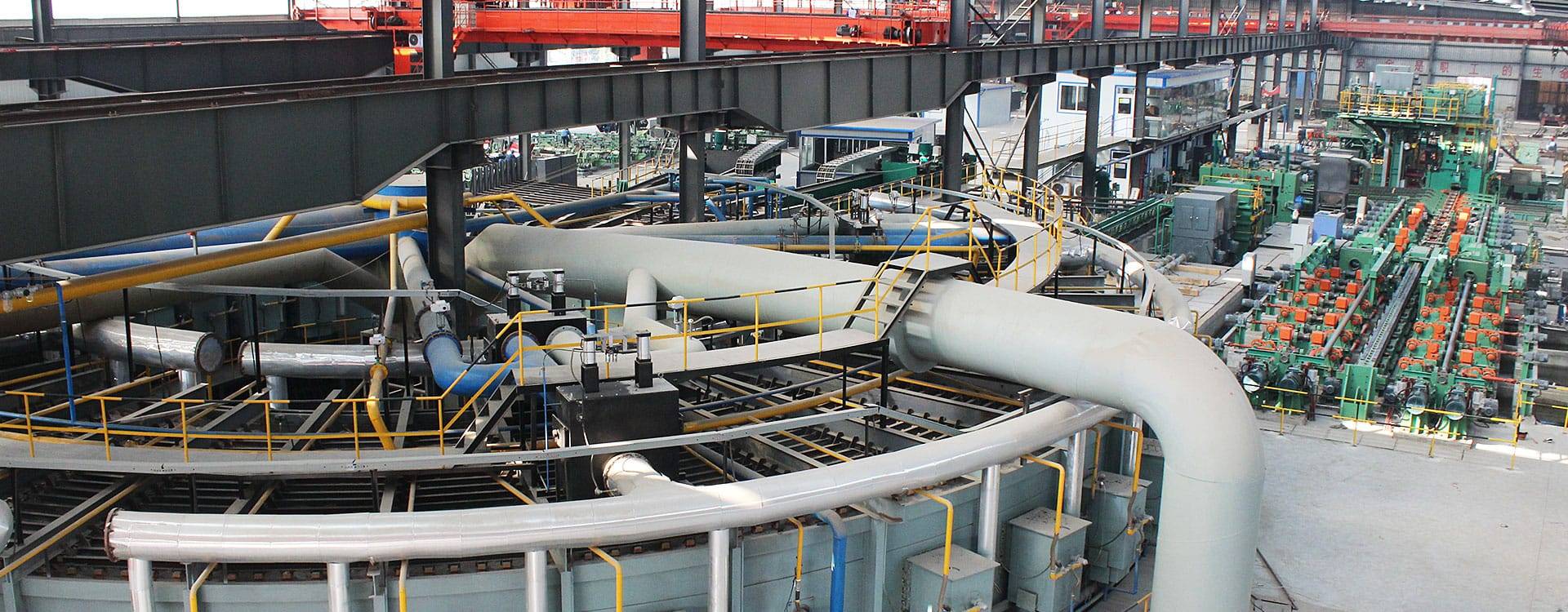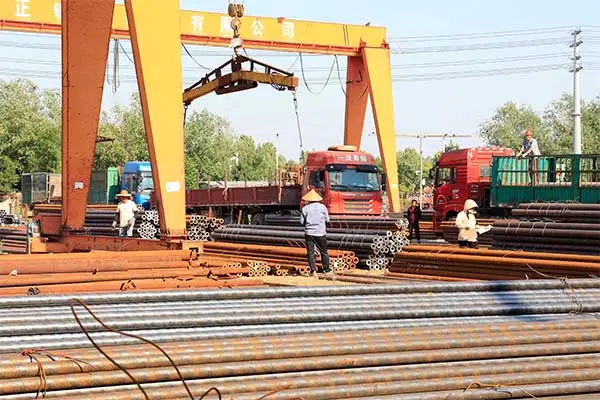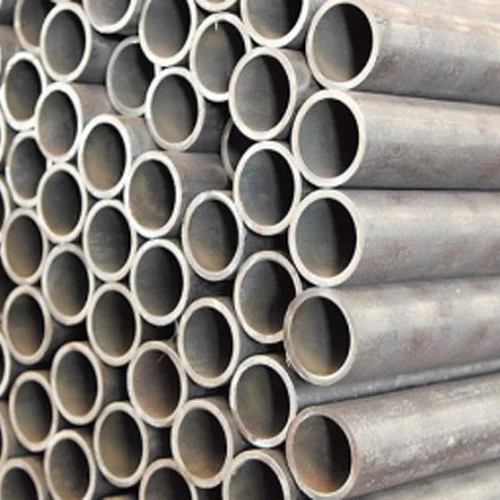Welcome to My Blog!
Before we dive into the content, I’d love for you to join me on my social media platforms where I share more insights, engage with the community, and post updates. Here’s how you can connect with me:
Facebook:https://www.facebook.com/profile.php?id=61559060896490
Now, let’s get started on our journey together. I hope you find the content here insightful, engaging, and valuable.
Introduction
The importance of quality in steel pipe supply can’t be overstated. Whether you’re in construction, oil and gas, or any industry that relies on durable piping, understanding why quality matters in steel pipe supply can significantly impact project success and safety. This article provides a deep dive into the reasons behind prioritizing quality in steel pipe supply, highlighting factors that can affect your sourcing decisions. Let’s explore why quality matters in steel pipe supply and the role it plays in various industrial applications.

The Role of Quality in Steel Pipe Supply
In the world of industrial supply chains, ensuring high standards in materials like steel pipes has profound effects. For projects that demand longevity and robustness, the quality of the steel pipe supply affects the safety, reliability, and efficiency of the entire system.
Key Points to Consider:
- Structural Integrity: Low-quality pipes may compromise project safety.
- Performance Under Pressure: High-grade steel pipes withstand greater pressures.
- Environmental Factors: Quality pipes are better equipped for various environmental conditions.
Common Quality Standards in Steel Pipe Supply
Knowing which quality standards apply to steel pipe supply is essential. Different regions and industries may have specific standards to ensure the durability and performance of steel pipes in various applications.
| Quality Standard | Region/Industry | Description |
|---|---|---|
| ASTM (American Society for Testing and Materials) | North America | Common in construction and engineering industries |
| DIN (Deutsches Institut für Normung) | Europe | Often used in manufacturing and engineering industries |
| ISO (International Organization for Standardization) | Global | Sets broad international standards for quality |
| API (American Petroleum Institute) | Oil & Gas Industry | Specifically for oil and gas applications |
Factors Affecting Steel Pipe Quality in Supply Chains
Understanding the factors that influence steel pipe quality in the supply chain allows buyers to make informed decisions. The process of steel manufacturing, the type of alloy, and the production methods all play a role in the final product’s quality.
Key Influencers:
- Manufacturing Process: Pipes made through extrusion vs. welding may have different durability.
- Material Composition: Alloys used in steel affect strength and flexibility.
- Testing and Quality Assurance: Reliable suppliers conduct extensive testing to ensure compliance.
Benefits of Choosing High-Quality Steel Pipe Supply
Investing in quality steel pipe supply offers numerous benefits, both immediate and long-term, for companies. Quality in steel pipe supply enhances productivity and reduces maintenance costs.
Key Benefits:
- Longevity: High-quality steel pipes tend to last longer, minimizing replacement costs.
- Efficiency: Better materials can improve flow efficiency in fluid or gas transfer.
- Cost-Efficiency Over Time: Though initially more costly, high-quality steel pipes reduce costs over time.
Risks of Compromising on Quality in Steel Pipe Supply
Compromising on quality may lead to immediate savings, but in the long run, it often results in increased costs due to frequent replacements, repairs, and potential safety hazards. Below are the risks associated with low-quality steel pipe supply.
Risks Include:
- Leakage and Breakage: Lower-quality pipes may suffer from leaks under high pressure.
- Increased Downtime: Frequent repairs disrupt operations.
- Potential Hazards: Inferior materials can pose serious safety risks in industrial settings.
How to Identify a High-Quality Steel Pipe Supplier
Finding a reliable steel pipe supplier requires understanding their commitment to quality, certification, and industry standards. Here are factors to consider when evaluating potential suppliers in steel pipe supply.
Factors to Evaluate:
- Certifications: Suppliers should comply with recognized quality standards like ISO, ASTM, or API.
- Quality Control Measures: Ensure that suppliers have robust testing procedures.
- Customer Reviews and Case Studies: Look for feedback and documented success stories from other customers.
Conclusion
In conclusion, the emphasis on quality in steel pipe supply is integral to the success and safety of any project that relies on durable piping solutions. Investing in high-quality steel pipe supply brings a multitude of benefits, from improved efficiency to enhanced safety, ultimately ensuring that the initial investment yields long-term dividends. Ensuring quality also means minimizing risks, reducing maintenance, and achieving regulatory compliance.

FAQs
What are the benefits of high-quality steel pipe supply?
- Quality steel pipe supply offers enhanced durability, reliability, and efficiency, resulting in reduced long-term costs and improved safety in industrial applications.
How can I ensure I’m purchasing high-quality steel pipes?
- Verify the supplier’s certifications, look for recognized industry standards like ISO or ASTM, and review their testing procedures.
Why do different industries need specific quality standards in steel pipe supply?
- Different industries, such as oil and gas or construction, have unique demands in terms of pressure, temperature, and environmental exposure, requiring specific standards to ensure safety and functionality.
Is it worth paying more for higher-quality steel pipes?
- Yes, while initial costs may be higher, the reduced need for repairs and replacement can lead to significant savings over time.
By maintaining focus on quality, your projects can benefit from enhanced safety, longevity, and performance, emphasizing why quality truly matters in steel pipe supply.




